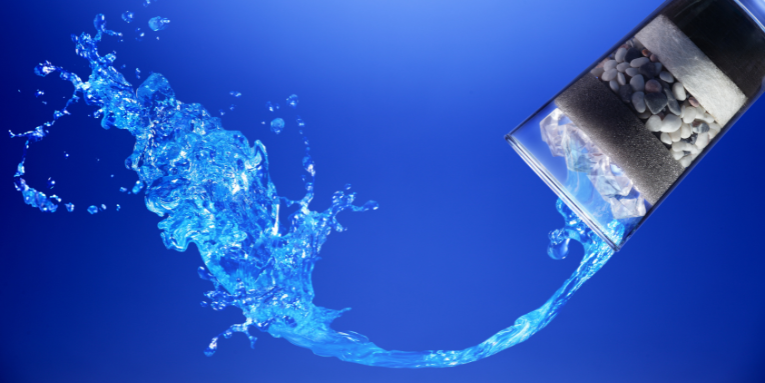Water is a pretty important component of everyday life.
Being two-thirds water ourselves, humans need to drink water to survive.
Then there are all the other functions that water helps with!
So, preserving and purifying this important resource should be a top priority.
The easiest and most efficient way to do this is to have water filters in your home and workplace.
Let’s explore the literal ins and outs to answer the question, how does a water filter work?
What Is A Water Filter?
A water filter is a device whose main task is to remove impurities, contaminants and particles from water. In doing so, a water filter can improve the quality of your water, making it safer to drink or utilise in other ways, such as bathing, swimming or general purpose.
Water filters come in different forms and sizes - tap-mounted, countertop, under-sink, fridge, pool, spa, or entire home filtration systems. Water filters use various methods to purify the water, the most common is physical filtration, but there is also the option for chemical or UV options.
Water filters are a cost effective and environmentally friendly solution for ensuring your family or workplace has access to clean and healthy water.
What Does A Water Filter Do?
The main purpose of a water filter is to improve the quality of your water. It does this by:
- Removing particles: The filter within a water filter system effectively removes particles and other contaminants such as leaves, bugs, dirt, sand, rust and other debris.
- Reduces chemicals: Most water supplies are treated with chemicals to keep it safe for drinking. However, those chemicals can impact the taste and odour of the water. A filter can absorb and trap chemicals like chlorine.
- Filters microorganisms: Bacteria love damp places, so can often be found in your water. A filter can help to remove any bacteria and reduce the risk of waterborne health risks.
- Safer, cleaner water: By removing impurities, contaminants and potentially harmful substances, water filters create high quality water that is safer to consume and use, along with making it taste and smell better.
How Does A Water Filter Work?
Now we know all the benefits of having a water filter, let’s explore how the filter actually does the heavy lifting to improve your water quality.
All water filter systems work with the same premise. Water enters the system from a designated source, passes through the filter component of the system and then exits fully filtered and purified.
There are several different filter methods that you can choose from. The most common ones are:
Physical Filtration
Physical filtration involves passing water through a cartridge that contains a material which traps any particles and contaminants that shouldn’t be in the liquid.
The filter cartridge is often made of a material like ceramic, paper, or pleated fabric. The weave is so fine that it physically blocks particles like sediment, dirt, rust, and larger microorganisms from passing through, while allowing clean water to flow onwards.
You can browse our filter systems here.
Activated Carbon
Activated carbon filters work by adsorbing contaminants onto the surface of activated carbon particles. Because activated carbon is highly porous, it provides a large surface area for adsorption. As water passes through the filter, molecules of contaminants like chlorine and organic compounds adhere to the carbon surface, effectively removing them from the water.
You can browse our filters here.
UV Disinfection
UV water purifiers use ultraviolet light to disinfect water and deactivate harmful microorganisms such as bacteria and viruses. Water passes through a UV chamber where the UV light disrupts the DNA of microorganisms, preventing them from reproducing and rendering them harmless. UV disinfection is a chemical-free and environmentally friendly method of water treatment.
You can browse our UV filters here.
Reverse Osmosis
Reverse osmosis systems contain a membrane that allows water molecules to pass through while blocking contaminants, ions, and particles. Water is forced through the membrane under pressure, separating it into purified water and concentrated wastewater. This makes the reverse osmosis membrane effective at removing a wide range of contaminants, including dissolved solids, bacteria, viruses, and other impurities.
You can browse our Reverse Osmosis filters here.
Combination Systems
Many water filtration systems use several different filtration technologies to provide a comprehensive water treatment. For example, a system might combine physical filtration with UV disinfection to remove particles, chemicals, and microorganisms from the water to create high-quality drinking water.
Replacement Cartridges
Over time, the effectiveness of your water filtration system can decrease. This is generally because your filter cartridge becomes clogged, requiring replacement.
Fortunately, this is easy to do. Simply order a cartridge that matches your filtration system, and you’ll be back to enjoying clean, fresh water in no time. Here at Water Filters Online, we stock a huge range of filter systems and cartridges.
You can browse our filters online or contact our friendly team with any questions.

